Bridgerton star Jonathan Bailey talks sexuality and acting with Sir Ian McKellen
As Jonathan Bailey marks another career breakthrough in Netflix's glossy new period drama, the fast-rising star compares notes with a gay screen legend.
By Will Stroude
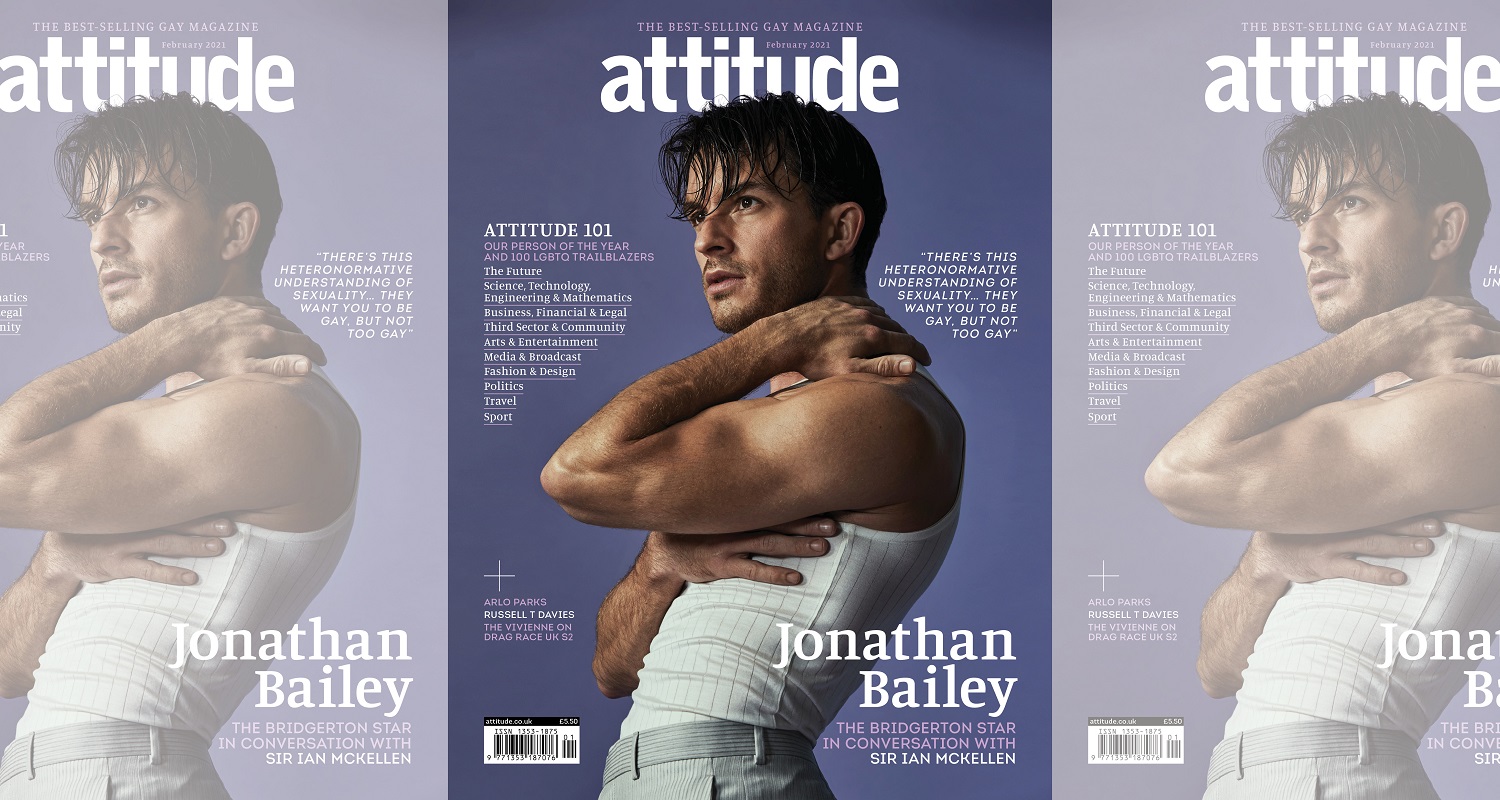
After stand-out turns in British TV series like Broadchurch, W1A and Phoebe Waller-Bridge’s pre-Fleabag comedy Crashing, Jonathan Bailey’s profile is set to explode on both sides of The Pond in 2021 as part of Shonda Rimes’ deliciously addictive Netflix period drama Bridgerton.
As philandering heir Anthony Bridgerton, Jonathan has already won the hearts of many more girls and guys since the series premiered on Christmas Day, and after adding a prestigious Olivier award to his mantelpiece following a scene-stealing performance as a gay man with wedding jitters in the West End revival of Company last year, the 32-year-old is a worthy lead for the Arts & Entertainment category in our inaugural Attitude 101 list of LGBTQ trailblazers.
As Jonny appears on the cover of the Attitude 101 February issue – out now to download and to order globally – we bring the fast-rising out star together with a gay screen titan who came out at a very different time for LGBTQ talent, the legendary Sir Ian McKellen.
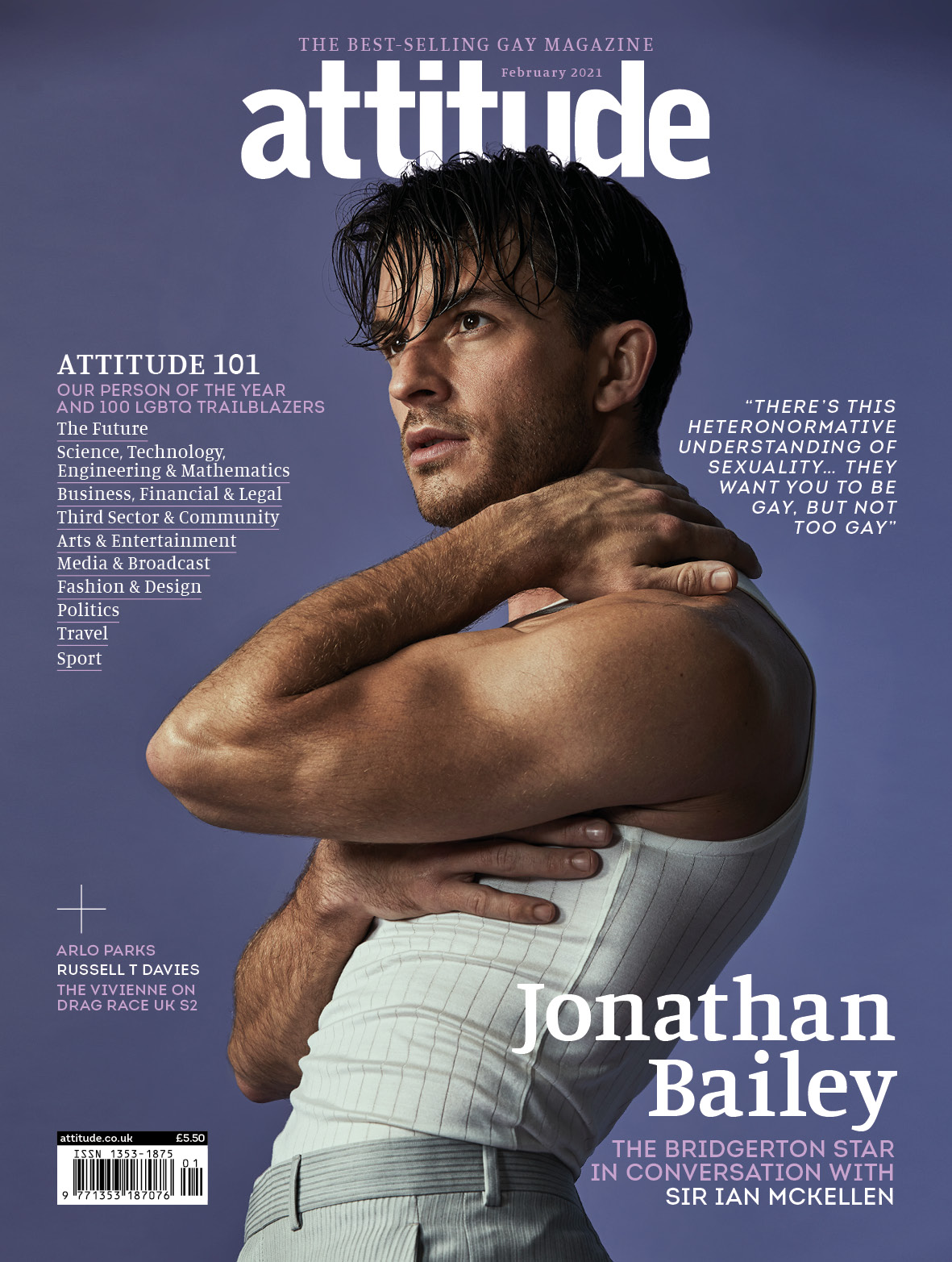
Bridgerton star Jonathan Bailey speaks to Sir Ian McKellen about the realities of being a gay actor in the industry in the Attitude 101 February issue, out now (Photography: Claire Harrison)
Jonathan and Sir Ian first met in 2017 when they appeared on stage together in a production of Shakespeare’s King Lear.
With almost half a century separating the two and each of them representing a very different generation of LGBTQ actor, their conversation is a fascinating insight into how being an out gay man in the industry has morphed from a potential career-ending into something that’s increasingly being celebrated or, possibly, turned into a mere commodity.
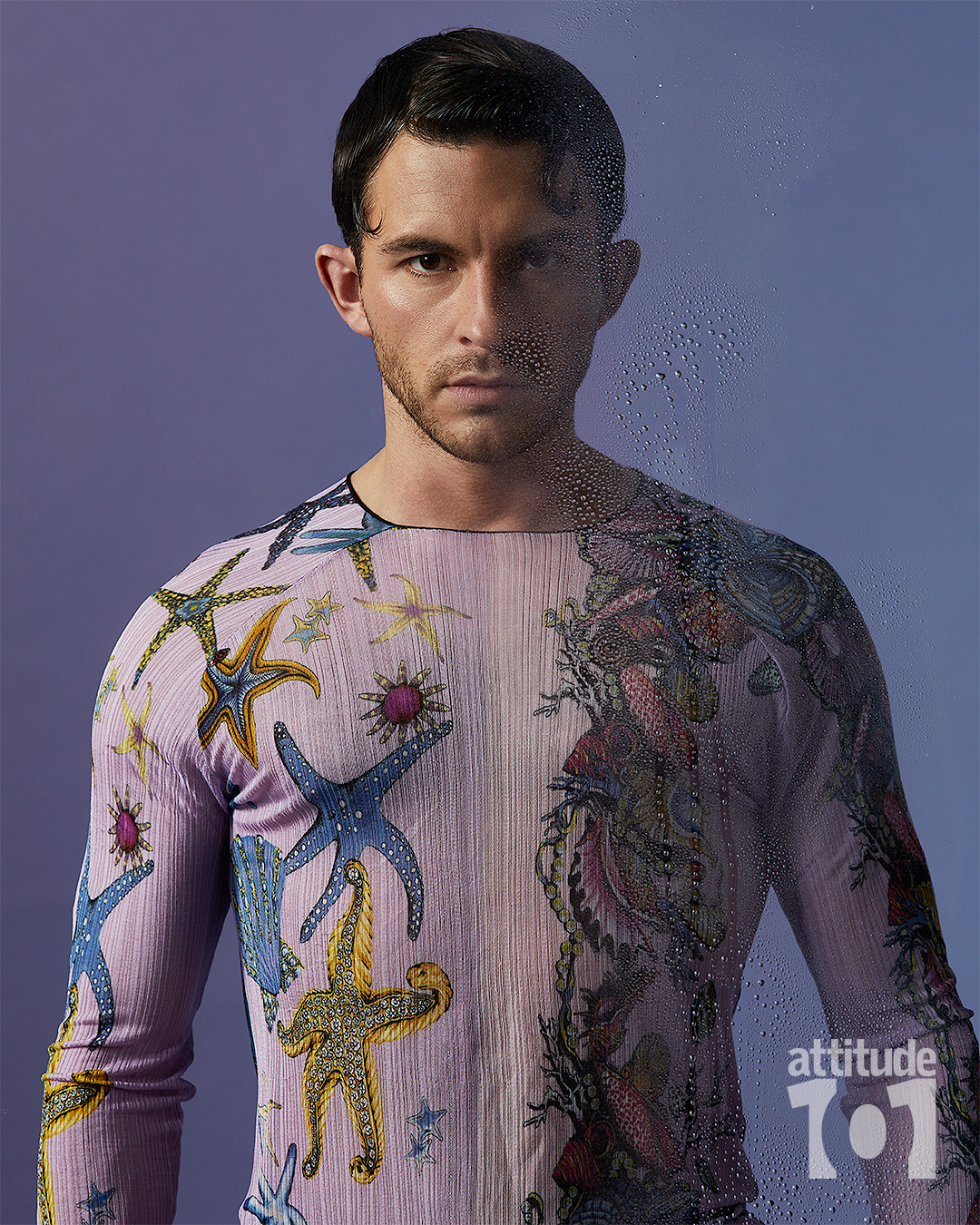
Jonathan wears top by Versace (Photography: Claire Harrison)
In three exclusive extracts shared here, Jonathan recalls how he first saw Sir Ian at Pride in London in 2006 when he was still a closeted teenager coming to terms with his sexuality – while Sir Ian reflects on how an actor coming out as gay during the ’80s could “jeopardise” any and all projects they were involved with.
Over the course of their discussion, Jonathan reveals that “the most conservative conversations” he’s had when it comes to being open about his sexuality have been with other gay men in the industry.
He adds that as his profile rises, he’s still working out how he can be a visible gay role model while maintaining a private life – preferring, as he does, to talk publicly about versatility when it comes to his craft, and not the bedroom…
_____________________________
Jonathan Bailey: Do you remember when we met?
Sir Ian McKellen: No, not really.
J: We met on day one of rehearsals of King Lear, in which we were both going to appear nude on stage.
I: Yes.
J: But do you know what the interesting thing is? Because obviously that wasn’t the first time we met, because we met when I was in Trafalgar Square as a young, wee lad and you were doing a speech on Pride, and you were on stage and you said, ‘Now’s the time to come out’.
I: Oh, yes. Best day of the year to come out.
J: Of course. And I stood there and I wasn’t ready. I was doing a play, I took over from Andrew Garfield in Beautiful Thing [in 2006], and I was in rehearsals, and they took me to Pride to understand the community. And I remember that moment. But it wasn’t my time…
_____________________________
J: …The most conservative conversations I’ve had about me being honest about my sexuality in this day and age have come from gay men in the industry, ‘Oh, no, you can’t come out. You shouldn’t really do that. If you do that, you’re going to have to…’ They’re either people who work in publicity, or there’s also been casting directors who have put the call into my agent to say, ‘Just so that you know, the way that this is going to be sold is that it’s a gay story written by gay writers for gay actors. So by just taking the role…’
This was at a stage where perhaps I was coming to terms with my own sexuality, I hadn’t necessarily hidden it… But I’ve never been not honest about it. It’s just there had never been a need to talk about it. There’s a sense of shame, I think, that’s palpable throughout gay men within the industry. But then there’s also this heteronormative, heterosexual understanding of sexuality.
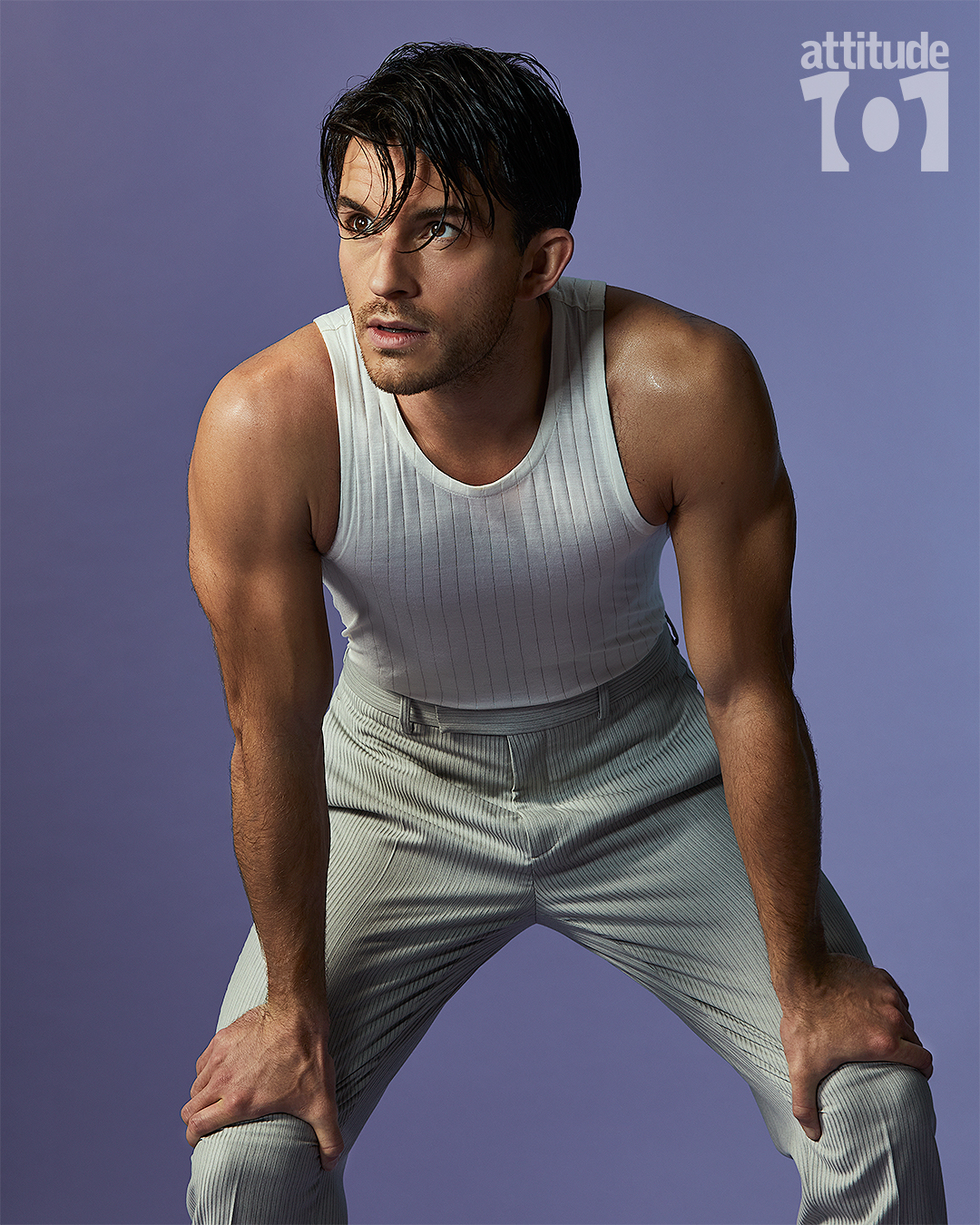
Jonathan wears tank top by BOSS, trousers by Dior (Photography: Claire Harrison)
So, in my generation, the out gay actors are now being poached. And you get a script sent through and they’ll say, ‘Must be comfortable with talking about sexuality’. So that is in one way a brilliant thing, because it’s saying we’re not encouraging anyone not to talk about sexuality, but it’s also showing that sexuality is becoming a commodity. That actually there needs to be this sense that studios are hiring gay actors to play either gay actors or straight.
I: Well, I know someone who has decided that it should be a gay actor playing a specific part. But they’re not, of course, allowed to say in a casting, ‘Are you gay?’. It would be discriminatory. But they want you to be gay.
J: They want you to be gay, but not too gay.
I: It used to be that if you were gay, if you came out, then you would jeopardize the whole project — particularly if it’s a television show. American television series would find that people in the Bible Belt objected, or that the advertisers did not want it to be sullied by your sexuality…
_____________________________
J: …It’s interesting, isn’t it? Because we’re saying about when you come out, that’s the beginning of a new chapter in growth, right? But for me, I don’t think I’ll ever know where I fit in, in terms of society, because it’s ever-changing.
So, for me, I don’t want to talk about my versatility in the bedroom. I’ll talk about my versatility on stage. For me, it’s about visibility. That’s it. Why is there this common assumption that because we’ve decided to gift people with the knowledge that we’re gay, it means that we’re actually then prepared to basically squat over a mirror and show them our inner workings?
What do you hope for someone like me starting out on my career now? Playing straight characters, wanting to be visible, but also knowing that there are lots of things about my life that are personal, and I don’t want to cross that line. But visibility is key. What do you hope for someone like me going forward, and what are your worries?
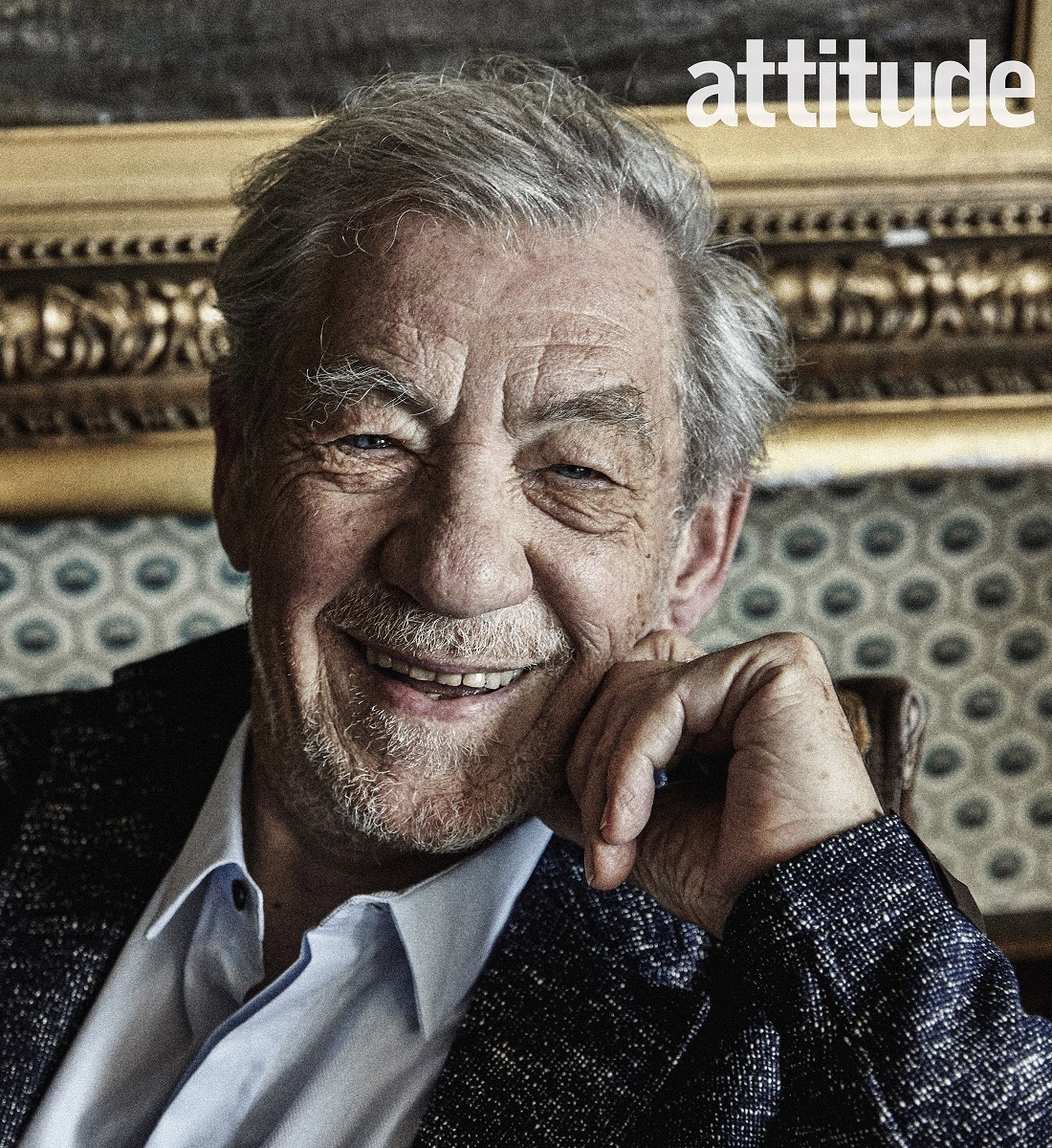
I: For the work, well, I just hope whatever you want from your work, the fact that you’re gay doesn’t impede it in any way. Honesty is the best policy for you. If people can’t cope with it…
J: Then move on.
I: But what I would hope for you is that your honesty about being gay, not having that secret, continues to bring you joy. But you place that, as far as your career is concerned, wherever you want it to be placed. You bring to the table, you bring to the workshop, you bring to the project, your life experience. And actually if you are gay, even now, you have experienced something about society which most people don’t have to bother about.
Read the full conversation between Jonathan Bailey and Ian McKellen in the Attitude 101 February issue, out now.

